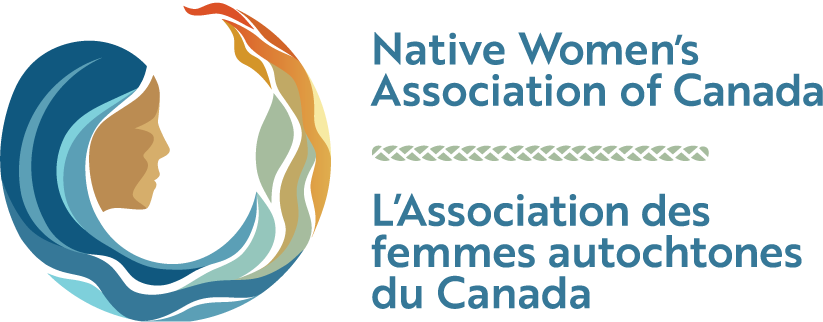In January 2022, NWAC held three virtual webinar engagement sessions on the FFHP. The focus of the engagement sessions was to understand Indigenous women, gender-diverse, and Two-Spirit people’s relationship to and traditional knowledge about issues regarding fish and fish habitat protection. From these engagement sessions, NWAC prepared a position paper outlining three key recommendations for the DFO about their Wave 2 Draft Position Statements. Click here to view the report in detail.
The first part of the engagement sessions focused on gauging participants general understanding and awareness – and how they would like to be made aware- about the FFHP and changes that can occur via its policies, programs, and regulator initiatives. The second part of the engagement sessions focused more specifically on how issues around fish and fish habitat affect Indigenous women, gender-diverse, and Two-Spirit people differently than Indigenous men as well as understanding what types of issues related to fish and fish habitat are the most important for the DFO to consider Indigenous women’s knowledge, views, and concerns.
The engagement sessions were held on January 17th, 20th, and 21st from 2:00 pm-4:00 pm EST. A total of 42 participants attended the sessions. Participants were recruited via NWAC’s Facebook and Twitter, with over 100 individuals expressing interest in attending one of the sessions. All individuals who participated in the engagement sessions were Indigenous women, gender-diverse, and Two-Spirt people, inclusive of First Nations residing within Indigenous and non-Indigenous communities, status and non-status, Métis, and Inuit, encompassing the Northern, Southern, Eastern, and Western regions of Canada.
Recommendation 1: The DFO should adopt a distinctions-based approach when consulting with Indigenous communities and considering Indigenous knowledge when making approval decisions for Fisheries Act authorizations, which would:
- Recognize the different relationships that Indigenous peoples have with the DFO based on history, geography, and physical proximity to First Nations reserves, Métis settlements, and Inuit land claim areas
- Rebuild trust and foster relationships founded on respect and reciprocity with communities in the East by providing cultural sensitivity training to DFO officers and encouraging them to participate in community-based education about fish and fish habitats
- Coordinate with Indigenous governments to utilize their existing community newsletters and social media networks to actively consult with and seek knowledge from First Nations who live off reserve, Métis who do not reside in settlements, and Inuit who live outside of traditional land claim areas
Recommendation 2: The DFO should use a culturally relevant gender-based analysis to incorporate Indigenous women and gender-diverse people’s knowledge and perspectives when making approval decisions for Fisheries Act authorizations, which would:
- Engage directly with Indigenous women and gender-diverse people at the grassroots level through one-on-one conversations
Consider Indigenous women’s roles as food providers, water-keepers, and lifegivers
Recommendation 3: Consultations with Indigenous communities must be reciprocal and Indigenous Knowledge shared with the DFO needs to be valued and respected, this can be achieved by:
- Replacing the DFO’s “Scientific Risk-Informed Approach” with a “Two-Eyed Seeing Approach” when making approval decisions for Fisheries Act authorizations
- Honoring the intent of Indigenous Knowledge shared with the DFO by amending Section 61.2 (2) of the Fisheries Act which allows the Minister to disclose confidential Indigenous Knowledge
- Developing a reporting system where the DFO discloses to Indigenous communities how any Indigenous Knowledge shared with them was used
- Paying Indigenous Elders and Knowledge-Keepers at the same rate as scientific and western experts
DRAFT Position Statement (talkfishhabitat.ca)
Discussion 1
How aware are you of the FFHP program and any developments or changes to it? If not, why do you think this is?
2. Has the government ever informed you or your community about proposed changes or developments to the FFHP? If not, why do you think this is?
3. How would you like the government to share information with you regarding any developments or changes to the FFHP?
4. Are there any barriers to the government sharing proposed developments or changes about the FFHP program with you or your community? If so, what are the barriers?
Discussion 2
In your experience, do proposed changes to policies or developments regarding the FFHP that affect fish and fish habitats impact Indigenous women and gender-diverse people differently than men?
2. How can the government take Indigenous women and gender-diverse people’s perspectives and knowledge about fish and fish habitats when considering changes to policies or approving works to the FFHP?
3. What specific changes to policies or programs under the FFHP do you think are particularly important for the government to consider Indigenous women and gender-diverse people’s knowledge and perspectives?
4. What are some comments or concerns that you have about Indigenous women and gender-diverse people sharing their perspectives and knowledge about fish and fish habitats with the government when making changes to policies or developments to the FFHP program?



